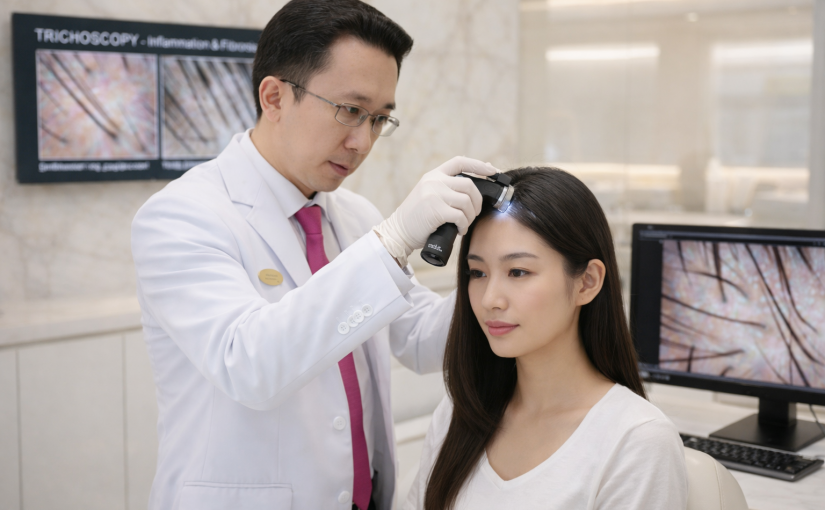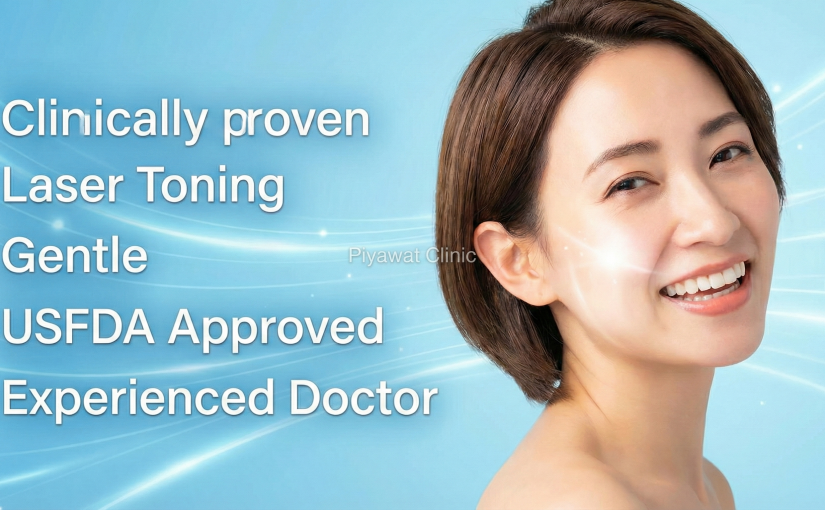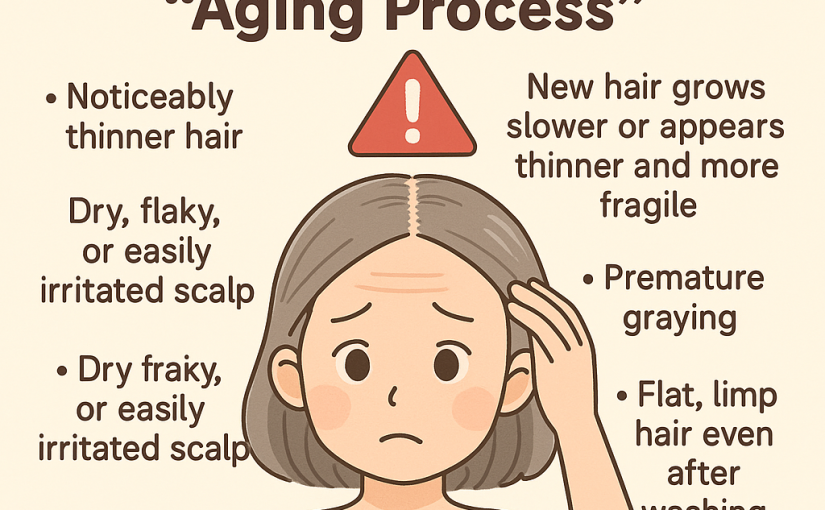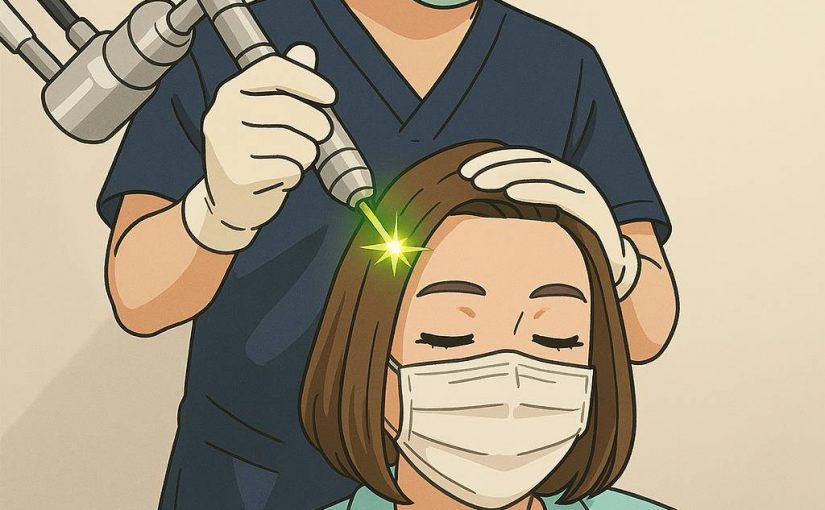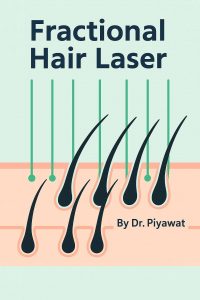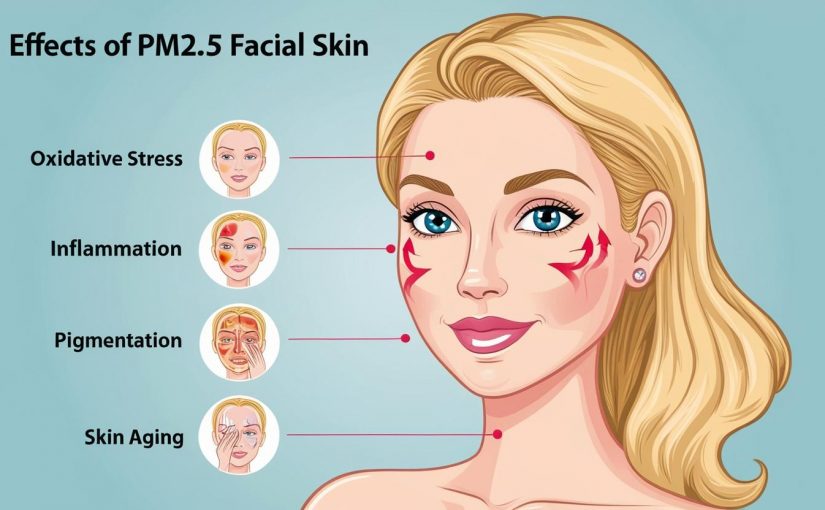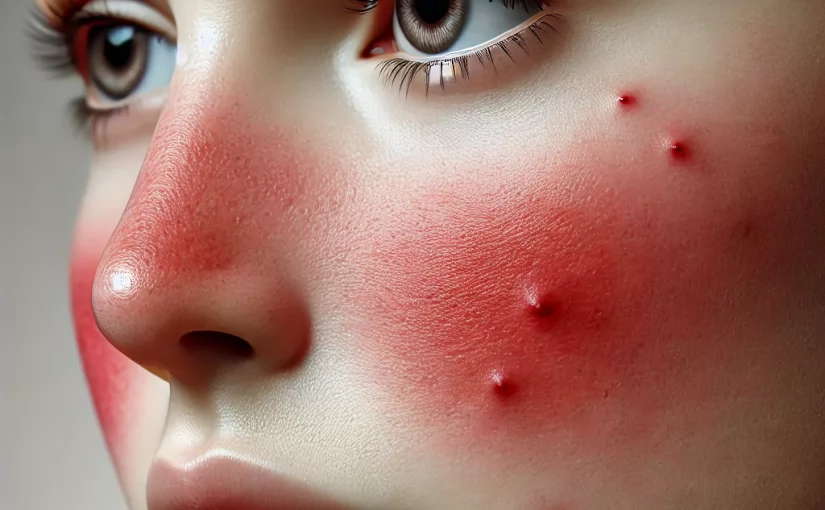บทความโดย นายแพทย์ ปิยะวัฒน์ ภูมิสุวรรณ
ความลับใต้หนังศีรษะที่คุณไม่เคยรู้: เมื่อ “ผมบาง” ในผู้หญิง ไม่ใช่แค่เรื่องของฮอร์โมน แต่คือ “การอักเสบและพังผืด”
เมื่อเราพูดถึง “ผมบางในผู้หญิง” หรือ Female Pattern Hair Loss (FPHL) เรามักนึกถึงภาพของคุณแม่หรือคุณยายที่มีผมบางลงตามวัย เรามักโทษฮอร์โมนหรือพันธุกรรม และทำใจยอมรับมัน แต่ข้อมูลจากงานวิจัยล่าสุดได้เปลี่ยนมุมมองการรักษาเรื่องนี้ไปอย่างสิ้นเชิงครับ
วันนี้ผมจะมาย่อยงานวิจัยที่เจาะลึกเรื่องนี้ (Cross-sectional Observational Study) ในคนไข้หญิง 90 ราย เพื่อให้คุณเข้าใจว่า ทำไม “การรอ” ถึงเป็นศัตรูตัวร้ายที่สุดของเส้นผม
🔍 ส่องกล้องมองหาความจริง (Trichoscopy)
ในอดีต เราอาจแค่มองด้วยตาเปล่าแล้ววินิจฉัย แต่ปัจจุบันเรามี “Trichoscopy” หรือกล้องขยายภาพหนังศีรษะ ซึ่งเปรียบเสมือน “แว่นขยายของนักสืบ” งานวิจัยนี้ยืนยันครับว่า สิ่งที่เรามองไม่เห็นด้วยตาเปล่า แต่กล้องเห็น คือกุญแจสำคัญ:
🚩เส้นผมขนาดไม่เท่ากัน (Anisotrichosis): เส้นใหญ่บ้าง เล็กบ้าง ปนกัน เป็นสัญญาณแรกเริ่มที่สุดที่บอกว่ารากผมคุณเริ่มอ่อนแอ
🚩รอยโรคคล้ายเป้ายิงปืน (Dartboard Sign): เป็นวงสีต่าง ๆ รอบรูขุมขน สื่อถึงความรุนแรงของโรค
🔥 ภัยเงียบ: การอักเสบ (Inflammation)
สิ่งที่น่าตกใจจากผลการตรวจชิ้นเนื้อ (Biopsy) ในงานวิจัยนี้พบว่า กว่า 73% ของคนไข้มีการอักเสบซ่อนอยู่ใต้ผิวหนัง และเมื่อส่องกล้อง เราจะเห็นเป็น “วงแหวนสีน้ำตาล” (Brown Peripilar Sign) รอบรูขุมขน
นี่คือ “ช่วงเวลานาทีทอง” ครับ เพราะการอักเสบแปลว่ารากผมกำลังถูกโจมตี หากเรารักษาในระยะนี้ ทั้งการใช้ยาทา ยาทาน แชมพูยา หรือ ทำทรีตเมนต์ เพื่อลดการอักเสบ เราจะสามารถยับยั้งความเสียหายได้ทันท่วงที
🚨 จุดเปลี่ยนที่น่ากลัว: พังผืด (Fibrosis)
หากปล่อยการอักเสบทิ้งไว้นานๆ โดยไม่รักษา หรือรักษาผิดวิธี สิ่งที่ตามมาคือ “วงแหวนสีขาว” (White Peripilar Sign) ซึ่งงานวิจัยระบุชัดเจนว่า สัมพันธ์กับระยะเวลาที่เป็นมานาน และเมื่อตรวจชิ้นเนื้อลงไป จะพบภาวะ “พังผืดรอบรากผม” (Perifollicular fibrosis)
พูดง่ายๆ คือ รากผมเดิมที่เคยมีชีวิต ถูกแทนที่ด้วยแผลเป็น ทำให้ผมใหม่ไม่สามารถงอกขึ้นมาได้อีก หรือเส้นเล็กลงมากจนมองแทบไม่เห็น งานวิจัยพบว่าเกือบ 1 ใน 3 ของคนไข้ที่ผมบางมาก มีภาวะพังผืดนี้เกิดขึ้นแล้ว ซึ่งนั่นทำให้หมอมองว่า โรคผมบางในผู้หญิง ควรถูกพิจารณาว่าเป็นโรคที่ทำให้เกิดแผลเป็นขนาดจิ๋ว (Micro-cicatricial alopecia) ได้เลยทีเดียว
💡 บทสรุปและการดูแลตัวเอง
สิ่งที่ผมอยากฝากไว้จากข้อมูลงานวิจัยนี้คือ:
✅️อย่ารอให้บางจนเพื่อนทัก: คนไข้ 90% ในงานวิจัยนี้ มาหาหมอเมื่ออาการรุนแรงแล้ว (Severity score ≥10) ซึ่งกู้คืนยาก
✅️สังเกตตัวเอง: ถ้ารอยแสกกว้างขึ้นเกิน 1 ซม. หรือผมด้านหน้าบางลง ให้รีบปรึกษาแพทย์
♦️การรักษาต้องตรงจุด: ถ้าตรวจพบการอักเสบ แพทย์อาจจำเป็นต้องจ่ายยาหรือทำทรีตเมนต์เพื่อลดการอักเสบร่วมด้วย ไม่ใช่แค่ให้ยาปลูกผมเพียงอย่างเดียว เพื่อป้องกันการเกิดพังผืดในอนาคต
♥️ผมบางรักษาได้ แต่ “เวลา” คือปัจจัยที่สำคัญที่สุดครับ♥️
“ที่ Piyawat Clinic เราตระหนักดีว่า ‘ความแม่นยำ’ คือหัวใจสำคัญของการรักษาและป้องกันไม่ให้ผมบางกลายเป็นปัญหาถาวร เราจึงกำหนดมาตรฐานให้มีการตรวจวิเคราะห์สภาพหนังศีรษะด้วยกล้องกำลังขยายสูง (Trichoscopy) กับคนไข้ ‘ทุกคน’ และ ‘ทุกครั้ง’ ที่เข้ามารับคำปรึกษาหรือทำทรีตเมนต์ เพราะเราเชื่อว่าการมองเห็นสัญญาณความผิดปกติในระดับจุลทรรศน์—ไม่ว่าจะเป็นขนาดเส้นผมที่เริ่มเล็กลงเพียงเล็กน้อย หรือร่องรอยการอักเสบที่ซ่อนอยู่—จะช่วยให้เราวางแผนการรักษาได้อย่างตรงจุดและหยุดยั้งปัญหาได้ทันท่วงที หากคุณต้องการความมั่นใจและการดูแลที่ใส่ใจในทุกรายละเอียดเพื่อสุขภาพผมที่แข็งแรงในระยะยาว แวะมาปรึกษาและวางแผนการรักษาร่วมกันได้ที่ Piyawat Clinic ครับ”
📚 อ้างอิง
Singh S, Makhecha MB, Rambhia KD.
A cross-sectional observational study to correlate the trichoscopic findings of female pattern hair loss with the disease severity and underlying histopathological changes.
International Journal of Trichology. 2023;15:221-230.
